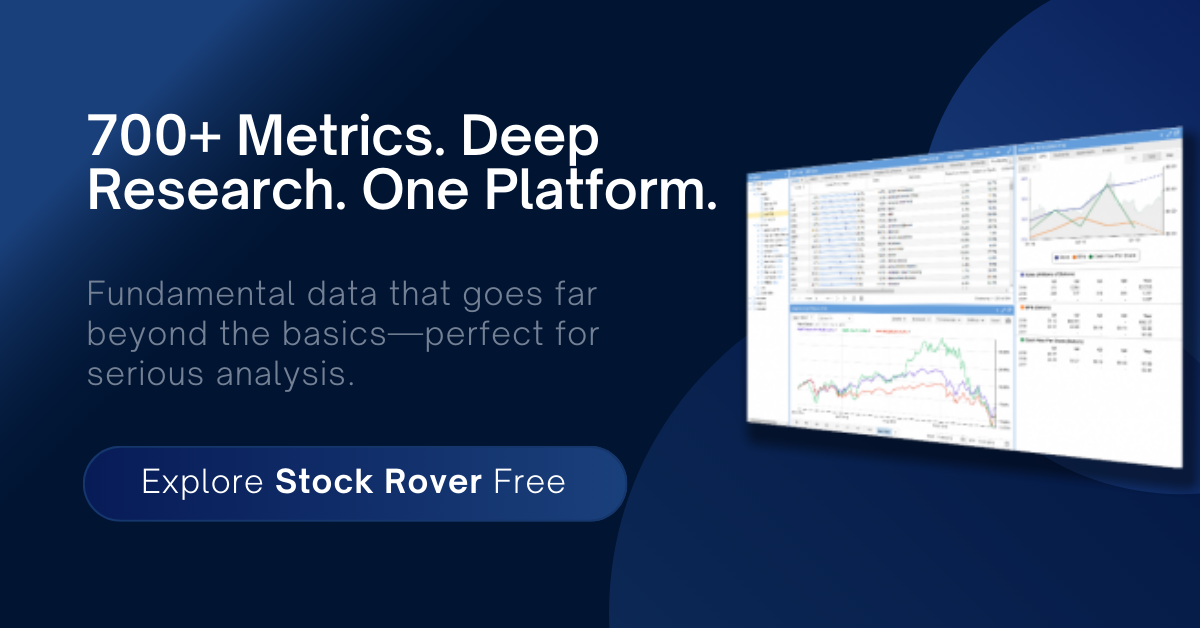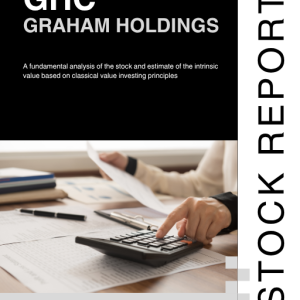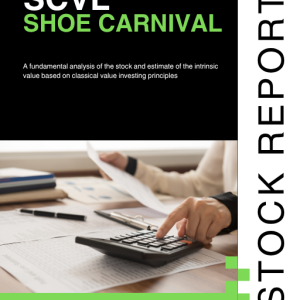
Why Dividends Matter—Even If They’re Not the Primary Focus
Many investors dismiss dividends as irrelevant, arguing that they do not impact a company’s intrinsic value. The logic is that whether a company retains earnings or distributes them as dividends, the value of the business remains the same.
While this argument holds in theory, reality is more nuanced.
As a value investor, I don’t specifically seek out dividend-paying stocks. If a company is deeply undervalued and presents a compelling margin of safety, I’m interested regardless of its dividend policy. However, when a stock I want to own pays dividends, I see it as an added benefit.
This brings up an important question: do dividends matter? The answer is yes, and they provide two key advantages: they keep management honest, and they compensate investors for the patience required while the market recognizes the stock’s true value.
Dividends Matter as a Litmus Test for Management Integrity
There are many cases of earnings manipulation and misstatements. As investors we trust the financials reflect accurate picture of the business but this is not always the case. While accounting can be fudged, what is not easy to fake is cold hard cash.
Cash Doesn’t Lie
Earnings can be manipulated through accounting tricks, but dividends require actual cash flow. A company paying a sustainable dividend signals confidence in its ability to generate real profits. When management commits to a dividend, they are essentially backing their reported earnings with cold, hard cash.
A Built-in Discipline Mechanism
Dividends enforce capital discipline. Without them, management might be tempted to reinvest profits into empire-building projects, excessive acquisitions, or vanity-driven expansion that benefits executives more than shareholders. Companies that maintain a consistent dividend tend to allocate capital more efficiently, ensuring that cash is used where it generates the highest return.
Not Every Dividend Is Created Equal
Some companies use dividends as a way to mask stagnation, distributing earnings instead of reinvesting in growth. The key is sustainability. Companies with a history of steady or growing dividends, backed by strong cash flows, tend to be more shareholder-focused. This is why I find dividends reassuring—not because they make a stock a better investment on their own, but because they are a positive signal about management’s priorities.
Very high dividend yields can be unsustainable. This is not always true – a high yield can also result due to temporary stock undervaluation where the company itself may still be fundamentally strong. But this is something you should check out.
There are also cases where a company falls on hard times but wants to continue paying the dividend that it can no longer afford. Normally a company will do this to maintain confidence in its stock. As an investor you should be wary of this. You may come across a company that goes into debt to get the cash to pay a dividend. This is a disturbing sign of ill health in the business.
Case Studies of 3 Dividend Paying Companies
Recently Walgreens Boots Alliance (WBA) and Leggett & Platt (LEG) both cut their dividends. Both these companies were part of Dividend Aristocrats, these are the companies that have raised their annual dividends every year for the last 25 years. These companies have both seen severe deterioration in their business and were unable to sustain their dividends. This could have been predicted by their sky high dividend yields.
3M (MMM) also recently reduced their dividend, but the situation was a bit different. They did this after they spun off a division, which reduced the net income that was available to the holders of the 3M stock after the spin off. While news stories focused on the “dividend cut” and unsophisticated investors sold off the stock, if you paid attention and understood the situation, you would have benefited with almost 90% return in the stock price in the last 1 year (as of Feb 2, 2025).
Dividends Matter as Compensation for Waiting for Market Recognition
When you buy a value stock, you expect the rewards to come to you eventually. Most often you have no idea how long it will take.
The Value Investing Challenge
One of the biggest frustrations of value investing is the waiting game. Undervalued stocks can remain cheap for extended periods before the market realizes its mistake. Patience is required, but that patience is easier to maintain when you are getting paid to wait.
Getting Paid While You Wait
A dividend provides a tangible return even when price appreciation is slow. It softens the blow of market stagnation and gives investors a reason to hold onto their positions instead of selling out of frustration.
You can use the cash received as dividends to either
- buy additional shares in the company and expand your shareholding, or,
- reallocate it to other ideas that need funding
Reinvesting dividends is a powerful strategy for compounding growth.
In some cases, the company is so severely undervalued that it has more excess cash on the books than its stock price. This company can pay a substantial dividend (possibly 100% of the stock price) and still retain the ability to continue and prosper in its operating business. I almost always prefer they do this as it reduces the chances of the management squandering the cash in any ill-advised projects later on.
Mitigating Opportunity Cost
Investing always comes with opportunity costs. More so with value stocks as the time to profit can be long and unpredictable. Dividends allow the return to come to you periodically in small chunks, which is preferable to waiting for years and not getting your expected return. Also I would consider existence of a dividend as an insurance policy against the investment turning out to be a value trap.
Historical Examples: Patience Rewarded
There are countless examples of value stocks that took years to appreciate but rewarded patient investors through dividends. Many of Warren Buffett’s best long-term holdings, such as Coca-Cola and American Express, have paid substantial dividends along the way. Investors who focused only on price appreciation might have been tempted to exit early, missing the full extent of their returns.
Dividends are Reassuring but Not the Main Criteria
Many value investors look for a high dividend yield as one of the filters indicating value. This may be true but I believe this leaves out many potentially profitable stocks that deserve your attention.
Why I Don’t Filter for Dividends
A deeply undervalued company with strong fundamentals is attractive regardless of its dividend policy. Some of the best investments I’ve made have been in companies that didn’t pay dividends but reinvested earnings at high rates of return.
That Said, I Appreciate Them
When a stock I want to own happens to pay a dividend, I see it as an extra layer of confidence. It’s a sign that management is disciplined, cash flow is strong, and I’m being compensated while I wait for the stock to appreciate.
Breaking the Myth That Dividends Are Immaterial
Some investors argue dividends don’t matter because they come from the company’s earnings, which belong to shareholders anyway. But this ignores the psychological and financial benefits of consistent cash flow. Unlike share buybacks, which can be mistimed, dividends provide a structured return mechanism that investors can rely on.
Dividends vs. Buybacks
Buybacks can be an effective capital return strategy, but they are often executed at the wrong time—when stock prices are high. Dividends, on the other hand, provide steady, predictable returns that don’t rely on market timing.
The Psychological Edge: Why Dividends Strengthen Patience and Discipline
As you wait for your investments to produce profit, you will pass through many market cycles as well as the natural volatility in your holdings. There will be times you doubt your analysis. There will be times when you want to sell on a temporary spike. Your patience and discipline will be tested again and again.
Turning Market Volatility into an Advantage
Market downturns can be psychologically challenging, but reinvested dividends allow investors to buy more shares at lower prices. This natural dollar-cost averaging enhances long-term returns.
Cash Flow Stability
Dividends reduce the need to sell shares during market downturns. Investors who rely on portfolio withdrawals can use dividend income instead of liquidating stocks at depressed prices.
The Power of Compounding
Even if stock price appreciation is slow, reinvested dividends accelerate portfolio growth. Over time, this compounding effect becomes a significant contributor to total returns.
How to Incorporate Dividends in a Value Investing Strategy
The best way to incorporate dividends in your value investing strategy is to not look for them, but expect to find them in a large number of opportunities that comes your way. When you do your due diligence, give dividends a little extra weight as they do reduce your risk of loss.
Focus on Value First, Dividends Second
The primary focus should always be on valuation, business fundamentals, and margin of safety. Dividends are a secondary consideration, not a requirement.
Dividend Growth Matters More Than High Yield
A stock with a sustainable and growing dividend is often more valuable than a high-yield stock with limited reinvestment potential. Investors should prioritize companies with strong balance sheets and a history of increasing dividends.
Blending Dividend and Non-Dividend Stocks
A well-structured portfolio can include both high-conviction value stocks and stable dividend payers. This balance provides both growth potential and income stability.
Conclusion: Do Dividends Matter in Value Investing?
While I don’t seek out dividends as a primary investment criterion, I welcome them when they come with a stock I already want to own. They reinforce two key principles: they keep management accountable and they compensate investors for patience.
Many investors underestimate dividends, arguing they don’t affect intrinsic value. However, in practice, they provide financial stability, reinforce discipline, and can enhance total returns over time. As a value investor, I see dividends not as a necessity, but as a reassuring feature of a well-run company.
Featured products

Shailesh Kumar, MBA is the founder of Astute Investor’s Calculus, where he shares high-conviction small-cap value ideas, stock reports, and investing strategies. He is also a strategy and operations consultant focused on measurable business outcomes
His work has been featured in the New York Times and profiled on Wikipedia. He previously ran Value Stock Guide, one of the earliest value investing platforms online.
Subscribe to the Inner Circle to access premium stock reports and strategy insights.
Featured in:











